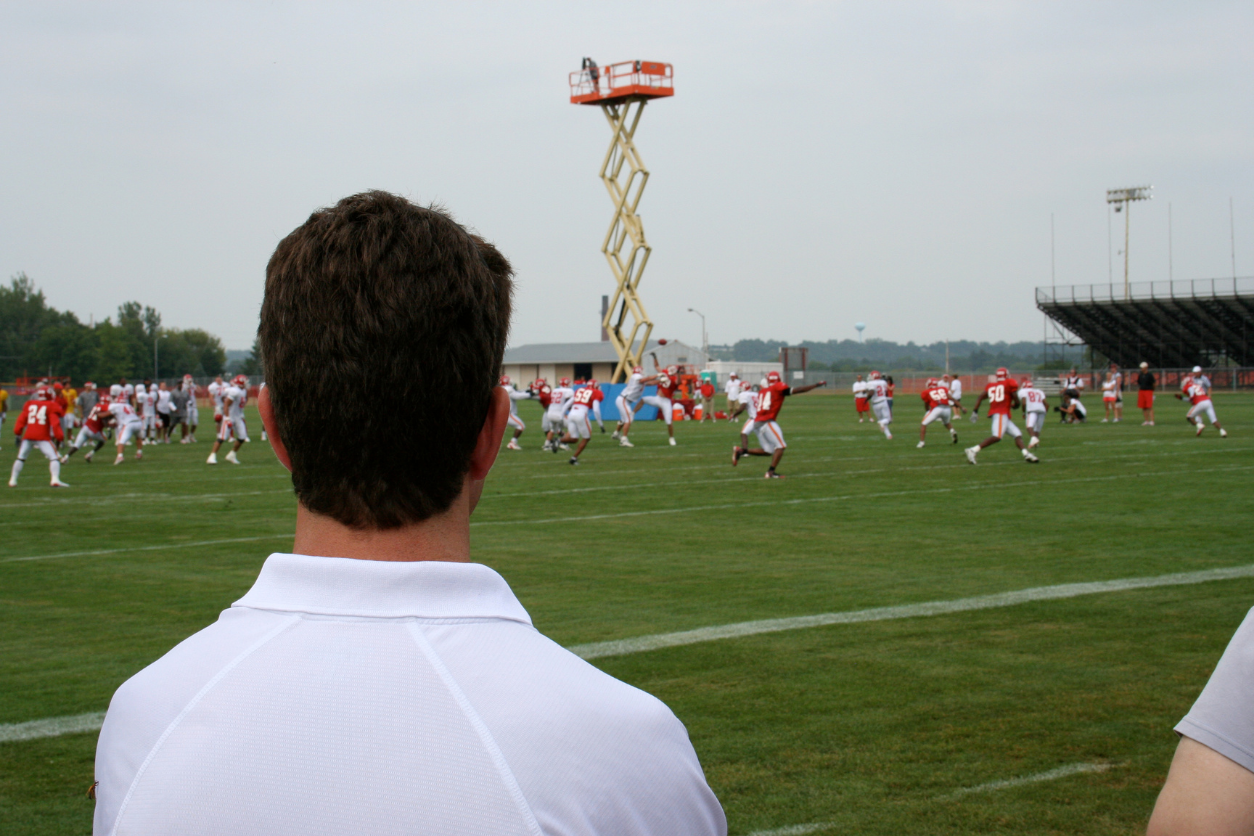If coaches are showing up to watch an athlete play as a 7th or 8th grader, it’s almost certain he or she will be recruited to play at the collegiate level. But for the other 99.9% of student-athletes out there, getting recruited isn’t always a certainty, especially if you’re in 9th or 10th grade. But as you work through your recruiting process, there are a few indicators that can help determine your own “recruitability.”
You’re A Varsity Starter
As a varsity starter, college coaches can see that you’ve competed at the highest levels among your peers and competed at the highest levels. And it shows that you’ve competed on the biggest stage and performed in pressure situations. Finally, landing a spot on the varsity also shows coaches you have a passion for your sport and that you’re willing to work to improve.
Does not being on the varsity mean you can’t get recruited and won’t have an opportunity to compete in college? Not at all. Depending on the level you want to play in college, it just means you’ll have to work harder to get on a coach’s recruiting radar because coaches naturally look at varsity players first.
You’re The Best Player On Your Team
Being among the best players on your team means you’ll likely stand out when coaches see your highlight reel or watch you in person. In addition, being the best athlete on your team – even if you’re not the best player – can also help raise your recruiting profile.
The problem with using best-player-on-the-team as a recruiting barometer is one of size. Which is to say, the best player on a 6A football team will likely get far more recruiting interest than the best player from a Class A high school team. That’s simply because the competition level is higher at bigger schools. But that doesn’t mean you won’t get recruited if you play for a smaller school or if you’re not the best player on your team. If you’ve got the skill, size, athleticism, and or the potential, coaches will find you. But again, that also means you may have to work harder than the other guy to get recruited.
Your Coach Thinks You Can Play In College
It’s likely, more than anyone you know, your high school coach will have the best understanding of your chances to compete at the next level. That’s because he or she is the one who has interacted with college recruiters as they’ve evaluated talent. Those interactions have likely given a high school coach a feel for what college coaches look for. Given that, your high school coach might be the first person to recognize you’ve got what it takes to compete at the next level and he or she will likely pass that assessment along to college coaches too.
Remember, if a coach doesn’t think you can play in college, that doesn’t mean he or she doesn’t believe in you and it doesn’t mean you can’t get recruited. In fact, if you tell a coach that your goal is to play at the next level, and you’re willing to put in the work to do so, odds are that coach will tell you what you need to do to get there. And, if you put in the extra work to be the best player you can be, your coach will also vouch for you to college coaches. And that’s yet another way of saying you might have to work harder to get recruited.
You’re An Athlete With Good Grades
If you don’t check off one or all of the boxes above, simply being an athlete with a solid GPA and good entrance exam scores can help get you recruited. Why? Because your good grades actually make you a more attractive recruit. That’s because good grades in high school show coaches you can handle the academic load in college. If a coach’s decision comes down between you and another recruit with lower grades, coaches will opt for the lower risk player every time.
In addition, good grades in high school can also make you eligible for academic scholarships in college. If a coach only has partial scholarships to offer, your eligibility for an academic scholarship means he or she can more easily assemble a scholarship package that allows them to stretch their scholarship money further. In other words, your good grades and eligibility for academic scholarships means you’ll have less need for athletic scholarship money. As a “better bargain,” you’ll also be more recruitable.
If you’re reading this as a 9th or 10th grader, consider it a checklist for what you need to do to be as “recruitable” as possible. If you’re a junior or senior and you’re not checking one or all of the boxes above, don’t be discouraged. If you want to get recruited, it’s up to you to put in the work. There are plenty of opportunities to compete in college. You just need to find the one that’s right for you.
Did you enjoy the article ‘How Recruitable Are You?’? If so, check out more of our articles HERE.



